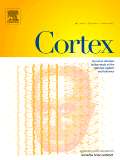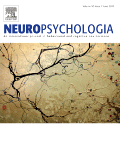
Neuroscience of Consciousness
Scope & Guideline
Illuminating the Pathways of Conscious Experience
Introduction
Aims and Scopes
- Neural Correlates of Consciousness (NCC):
Research focused on identifying and understanding the specific neural mechanisms that correlate with conscious experiences, including various brain regions and their interactions. - Psychedelic Research:
Investigating the effects of psychedelics on consciousness, exploring how these substances alter perception, cognition, and emotional states, and their potential therapeutic applications. - Metacognition and Self-awareness:
Examining the nature of self-awareness and metacognitive processes, including how individuals reflect on their own thoughts and experiences. - Complex Systems and Consciousness:
Applying complex systems theory to understand consciousness as a multidimensional phenomenon, exploring how different cognitive processes interact. - Phenomenological and Subjective Experience:
Focusing on the qualitative aspects of conscious experience, including feelings, perceptions, and the subjective nature of awareness. - Cognitive and Sensory Processing:
Studying how sensory inputs and cognitive processes contribute to conscious experience, including visual and auditory awareness. - Disorders of Consciousness:
Researching conditions that affect consciousness, such as coma, vegetative state, and the impact of anesthesia on conscious experience. - Computational and Theoretical Models:
Developing computational models and theoretical frameworks to explain consciousness, including predictive coding and active inference.
Trending and Emerging
- Active Inference and Predictive Coding:
Recent publications are increasingly focusing on active inference and predictive coding theories, exploring how these frameworks can explain perceptual and cognitive processes in relation to consciousness. - Psychedelic-Assisted Therapy:
There is a growing body of research investigating the therapeutic potential of psychedelics, particularly in the treatment of mental health disorders and their effects on consciousness. - Neurophenomenology:
An emerging trend towards integrating phenomenological approaches with neuroscience is gaining traction, emphasizing the importance of subjective experience in understanding consciousness. - Computational Neuroscience Models:
The use of computational models and simulations to investigate consciousness is on the rise, providing new insights into the mechanisms underlying conscious experience. - Consciousness in Virtual and Augmented Realities:
Research exploring consciousness in the context of virtual and augmented realities is increasing, examining how these technologies affect perception, self-identity, and social interaction. - Interdisciplinary Approaches:
An emerging trend is the collaboration between disciplines such as cognitive science, psychology, neuroscience, and philosophy, leading to richer, more comprehensive studies of consciousness.
Declining or Waning
- Traditional Dualism and Cartesian Approaches:
There has been a noticeable decline in papers supporting traditional dualistic views of consciousness, as the field increasingly favors integrated and materialistic approaches. - Overly Reductionist Explanations:
Research that attempts to reduce consciousness to simplistic neural mechanisms without considering the complexities of experience is less frequently published, indicating a shift toward more nuanced understandings. - Static Models of Consciousness:
Static or fixed models that do not account for the dynamic nature of consciousness are being phased out in favor of models that embrace variability and adaptability. - Purely Philosophical Discussions:
While philosophy remains important, there is a trend away from purely philosophical discussions of consciousness towards empirical research and interdisciplinary approaches. - Focus on Individual Neural Structures:
The previous emphasis on isolated brain structures as the primary correlates of consciousness is declining, as research now favors network-based approaches that consider interactions among multiple brain areas.
Similar Journals

Psychology of Consciousness-Theory Research and Practice
Bridging Theory and Application in Psychological ResearchPsychology of Consciousness-Theory Research and Practice, published by the Educational Publishing Foundation, American Psychological Association, serves as a pivotal platform for innovative research at the intersection of psychological theory and practical application. With its ISSN 2326-5523 and E-ISSN 2326-5531, this journal has established itself as a significant contributor to the field since its inception in 2016, continuing to shape discussions on consciousness through diverse psychological lenses. Recognized in 2023 with prestigious rankings such as Q2 in Clinical Psychology and Q2 in Social Psychology, it features rigorous studies that resonate widely among scholars and practitioners alike. Notable for its commitment to open discourse, although not open access, the journal encourages the exchange of ideas while maintaining high academic standards. Researchers and students will find invaluable insights into consciousness studies, informed by the latest empirical findings and theoretical developments, bolstering the journal's reputation as an essential resource for those dedicated to advancing the science of psychology.

Analytic Philosophy
Connecting Scholars to the Heart of Analytic PhilosophyAnalytic Philosophy is a prestigious journal published by Wiley, dedicated to advancing critical discourse in the realm of philosophy. With an ISSN of 2153-9596 and an E-ISSN of 2153-960X, this journal has rapidly established itself as a vital resource for researchers, professionals, and students seeking to explore contemporary philosophical debates and analytic methods. Operating from the heart of the United States, located at 111 River St, Hoboken, NJ, it holds an impressive Q1 classification in the field of philosophy for 2023, ranking #190 out of 806 within Scopus's Arts and Humanities category, placing it in the top 76th percentile. The journal’s commitment to rigor and innovation makes it an essential platform for thought-provoking research and discussions in analytic philosophy. Researchers will appreciate the journal’s high standards and its significant impact within the academic community.

COGNITIVE AFFECTIVE & BEHAVIORAL NEUROSCIENCE
Illuminating Connections: Understanding the Neuroscience of Mind and ActionCOGNITIVE AFFECTIVE & BEHAVIORAL NEUROSCIENCE (ISSN: 1530-7026, E-ISSN: 1531-135X) is an esteemed journal published by SPRINGER that aims to advance the understanding of the interplay between cognitive processes, affective states, and behavioral responses in the field of neuroscience. Established in 2001, the journal provides a rigorous platform for disseminating high-quality research, with a significant focus on both Behavioral Neuroscience and Cognitive Neuroscience. Classified in Q1 and Q2 quartiles for 2023, it ranks highly within its categories, holding positions of #37 out of 88 and #46 out of 115 respectively in the Scopus listings. Although not an open-access publication, readers can access a wealth of valuable insights and innovative findings that enrich the scientific community's understanding of brain function and behavior. The journal's emphasis on interdisciplinary research contributes to its esteemed reputation, making it a vital resource for students, researchers, and professionals striving to explore the complex nature of the human mind and behavior.

Time & Mind-The Journal of Archaeology Consciousness and Culture
Advancing Interdisciplinary Insights on Human ExperienceTime & Mind - The Journal of Archaeology Consciousness and Culture, published by Routledge Journals, Taylor & Francis Ltd, stands at the intersection of archaeology and consciousness studies, revealing the intricate relationship between cultural practices and human cognition. With a robust ISSN of 1751-696X and an E-ISSN of 1751-6978, this esteemed journal plays a vital role in fostering interdisciplinary dialogue among scholars in the realms of anthropology and archaeology. Notably recognized for its rigorous academic standards, it achieved a commendable Q2 category ranking across various fields in 2023, including Anthropology and Archeology, alongside impressive Scopus rankings. As it continues to publish cutting-edge research from 2008 to 2024, this journal remains dedicated to exploring the nuances of human experience through the lens of archaeological evidence, making it an indispensable resource for researchers, professionals, and students alike seeking to deepen their understanding of the cultural dimensions of consciousness.

Frontiers in Systems Neuroscience
Pioneering research in the realm of neuroscience.Frontiers in Systems Neuroscience is a premier open-access journal published by FRONTIERS MEDIA SA, dedicated to advancing the understanding of the complex systems that underpin neural function and behavior. Established in 2007 and based in Switzerland, this journal has gained recognition for its rigorous peer-reviewed articles that contribute significantly to the fields of Cellular and Molecular Neuroscience, Cognitive Neuroscience, and Developmental Neuroscience. As of 2023, it proudly holds a Q2 ranking in several neuroscience categories, reflecting its high impact and relevance in the academic community. The journal is accessible to researchers, professionals, and students worldwide, providing a platform for innovative research while promoting collaborative scientific dialogue. With a commitment to open access, Frontiers in Systems Neuroscience ensures that groundbreaking findings are readily available to enhance knowledge sharing across the globe. This makes it an essential resource for anyone looking to stay at the forefront of neuroscience research.

Journal of Neuropsychology
Illuminating the Pathways of Cognitive NeuroscienceThe Journal of Neuropsychology, published by WILEY, is a premier academic journal dedicated to advancing the field of neuropsychology and its related disciplines. With a focus on behavioral and cognitive neuroscience, this journal presents cutting-edge research that informs our understanding of psychological functions and their underlying neural mechanisms. Operating with an impressive impact factor representative of its rigorous peer-review process, the journal has established itself within the Q2 and Q3 quartiles of multiple relevant categories, including Neuropsychology and Physiological Psychology. Researchers will find the ISSN 1748-6645 and E-ISSN 1748-6653 useful for academic referencing as they explore articles that span innovative methodologies and insights into neurological conditions. Published continuously since 2007, the Journal of Neuropsychology stands as a vital resource for professionals and students alike, fostering scholarly discourse and knowledge exchange in neuropsychological research.

Language Cognition and Neuroscience
Exploring the Neural Pathways of Language and ThoughtLanguage Cognition and Neuroscience is a premier peer-reviewed journal published by ROUTLEDGE JOURNALS, TAYLOR & FRANCIS LTD, focusing on the intersection of linguistics, cognitive psychology, and neuroscience. Since its inception in 2013, this journal has established itself as a vital resource for researchers and scholars, contributing significantly to the understanding of how language is processed and represented in the brain. With its impressive rankings in various categories—Q1 in Linguistics and Language, Q2 in Cognitive Neuroscience, and Experimental and Cognitive Psychology—it caters to a diverse and interdisciplinary audience. The journal is accessible to readers worldwide, effectively communicating cutting-edge research and innovative methodologies in the field. Open Access options enable broader disseminations of knowledge, ensuring that significant findings reach both academic and practical applications. With a commitment to high-quality research, Language Cognition and Neuroscience continues to be an influential platform for advancing theories and practices within cognitive science and language studies.

CORTEX
Transforming Knowledge into Practice in Cognitive ScienceCORTEX is a premier international journal published by Elsevier Masson, focusing on the cutting-edge areas of cognitive neuroscience, psychology, and neurology. With an impressive impact factor that places it in Q1 quartiles across multiple categories such as Cognitive Neuroscience and Neuropsychology, this journal serves as a vital resource for researchers, clinicians, and students alike. Established in 1964, CORTEX has continued to excel in disseminating high-quality scholarly work, offering insights that significantly enhance our understanding of the brain's functioning and behavior. Although not an open-access publication, it provides various access options to ensure the dissemination of knowledge is as wide-reaching as possible. As the field of cognitive psychology evolves, CORTEX remains at the forefront, fostering an environment for interdisciplinary collaboration and innovation. Researchers seeking to stay engaged with the latest advancements will find CORTEX an indispensable tool for their professional development.

Neuropsychologia
Pioneering Research at the Nexus of Psychology and NeuroscienceNeuropsychologia, published by PERGAMON-ELSEVIER SCIENCE LTD, is a premier journal that delves into the intersections of psychology and neuroscience, specifically focusing on behavioral and cognitive processes. Since its inception in 1963, this esteemed journal has been a vital platform for researchers, professionals, and students, showcasing innovative studies and advancements in the fields of Behavioral Neuroscience, Cognitive Neuroscience, and Experimental Psychology. With a commendable impact factor, placing it in the Q2 category across multiple disciplines, Neuropsychologia is recognized for its contribution to the scientific community, ranking among the top journals in both Experimental and Cognitive Psychology and Neuroscience. The journal's commitment to excellence is evident in its rigorous peer-review process and its mission to disseminate cutting-edge research, making it an invaluable resource for those seeking to expand their knowledge and insights in neuropsychology. For further reading, the journal is accessible in both print and digital formats, ensuring that researchers can easily engage with the latest findings and theoretical advancements in this dynamic field.

International Journal of Cognitive Research in Science Engineering and Education-IJCRSEE
Fostering interdisciplinary dialogue in cognitive education.International Journal of Cognitive Research in Science Engineering and Education (IJCRSEE) is a prominent open-access journal that has been serving the academic community since 2013. Published by the Association for Development in Science Engineering and Education in Serbia, the journal focuses on the interdisciplinary fields of cognitive neuroscience, educational psychology, and experimental psychology. With an ISSN of 2334-847X and an E-ISSN of 2334-8496, IJCRSEE publishes cutting-edge research aimed at fostering dialogue and insights among researchers, educators, and practitioners. The journal holds a respectable position in the Scopus rankings, outlining its relevance in the fields of education and cognitive research, particularly noted for its Q4 category ranking in 2023. As it moves towards innovation and collaboration, IJCRSEE invites submissions that explore the cognitive dimensions of learning and teaching, bridging theory and practice to enhance educational outcomes. Researchers, professionals, and students alike will find in IJCRSEE a valuable resource that contributes significantly to the ever-evolving landscape of cognitive science and education.